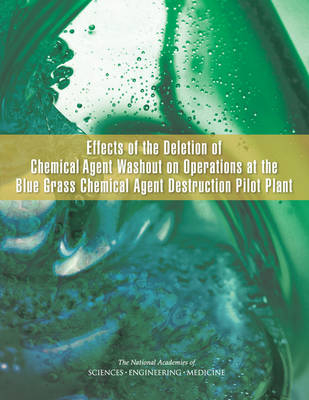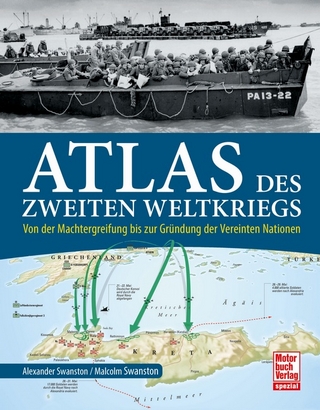
Effects of the Deletion of Chemical Agent Washout on Operations at the Blue Grass Chemical Agent Destruction Pilot Plant
Seiten
2016
National Academies Press (Verlag)
978-0-309-38948-8 (ISBN)
National Academies Press (Verlag)
978-0-309-38948-8 (ISBN)
The United States manufactured significant quantities of chemical weapons during the Cold War and the years prior. Because the chemical weapons are aging, storage constitutes an ongoing risk to the facility workforces and to the communities nearby. In addition, the Chemical Weapons Convention treaty stipulates that the chemical weapons be destroyed. The United States has destroyed approximately 90 percent of the chemical weapons stockpile located at seven sites.
As part of the effort to destroy its remaining stockpile, the Department of Defense is building the Blue Grass Chemical Agent Destruction Pilot Plant (BGCAPP) on the Blue Grass Army Depot (BGAD), near Richmond, Kentucky. The stockpile stored at BGAD consists of rockets and projectiles containing the nerve agents GB and VX and the blister agent mustard. Continued storage poses a risk to the BGAD workforce and the surrounding community because these munitions are several decades old and are developing leaks.
Due to public opposition to the use of incineration to destroy the BGAD stockpile, Congress mandated that non- incineration technologies be identified for use at BGCAPP. As a result, the original BGCAPP design called for munitions to be drained of agent and then for the munition bodies to be washed out using high-pressure hot water. However as part of a larger package of modifications called Engineering Change Proposal 87 (ECP-87), the munition washout step was eliminated. Effects of the Deletion of Chemical Agent Washout on Operations at the Blue Grass Chemical Agent Destruction Pilot Plant examines the impacts of this design change on operations at BGCAPP and makes recommendations to guide future decision making.
Table of Contents
Front Matter
Summary
1 Introduction
2 Plant Process Changes as a Result of Washout Deletion
3 Impacts on Calculation of Destruction Efficiency
4 Process Modeling in Support of Washout Deletion
Appendixes
Appendix A: Committee Activities
Appendix B; Biographical Sketches of Committee Members
As part of the effort to destroy its remaining stockpile, the Department of Defense is building the Blue Grass Chemical Agent Destruction Pilot Plant (BGCAPP) on the Blue Grass Army Depot (BGAD), near Richmond, Kentucky. The stockpile stored at BGAD consists of rockets and projectiles containing the nerve agents GB and VX and the blister agent mustard. Continued storage poses a risk to the BGAD workforce and the surrounding community because these munitions are several decades old and are developing leaks.
Due to public opposition to the use of incineration to destroy the BGAD stockpile, Congress mandated that non- incineration technologies be identified for use at BGCAPP. As a result, the original BGCAPP design called for munitions to be drained of agent and then for the munition bodies to be washed out using high-pressure hot water. However as part of a larger package of modifications called Engineering Change Proposal 87 (ECP-87), the munition washout step was eliminated. Effects of the Deletion of Chemical Agent Washout on Operations at the Blue Grass Chemical Agent Destruction Pilot Plant examines the impacts of this design change on operations at BGCAPP and makes recommendations to guide future decision making.
Table of Contents
Front Matter
Summary
1 Introduction
2 Plant Process Changes as a Result of Washout Deletion
3 Impacts on Calculation of Destruction Efficiency
4 Process Modeling in Support of Washout Deletion
Appendixes
Appendix A: Committee Activities
Appendix B; Biographical Sketches of Committee Members
1 Front Matter; 2 Summary; 3 1 Introduction; 4 2 Plant Process Changes as a Result of Washout Deletion; 5 3 Impacts on Calculation of Destruction Efficiency; 6 4 Process Modeling in Support of Washout Deletion; 7 Appendixes; 8 Appendix A: Committee Activities; 9 Appendix B; Biographical Sketches of Committee Members
| Erscheinungsdatum | 07.08.2016 |
|---|---|
| Verlagsort | Washington |
| Sprache | englisch |
| Maße | 216 x 279 mm |
| Themenwelt | Natur / Technik ► Fahrzeuge / Flugzeuge / Schiffe ► Militärfahrzeuge / -flugzeuge / -schiffe |
| Sozialwissenschaften ► Politik / Verwaltung | |
| ISBN-10 | 0-309-38948-8 / 0309389488 |
| ISBN-13 | 978-0-309-38948-8 / 9780309389488 |
| Zustand | Neuware |
| Haben Sie eine Frage zum Produkt? |
Mehr entdecken
aus dem Bereich
aus dem Bereich
von der Machtergreifung bis zur Gründung der Vereinten Nationen
Buch | Softcover (2023)
Motorbuch Verlag
24,90 €


